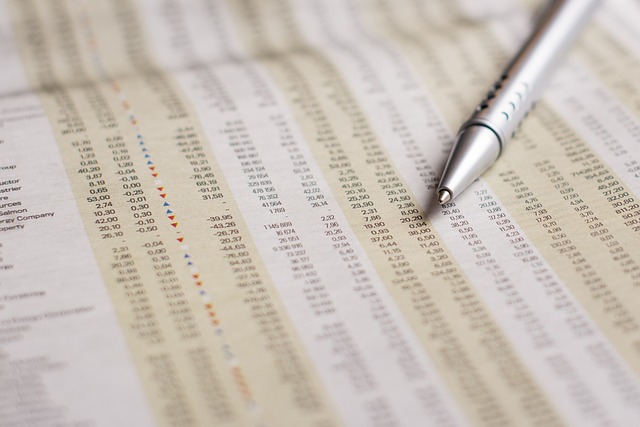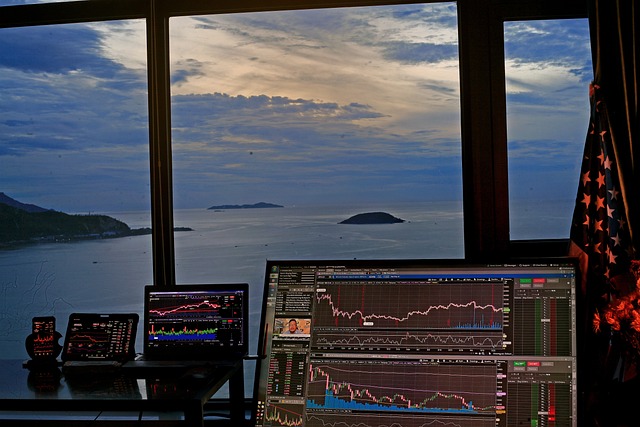The Ripple Effect: How Political Events Shape Stock Markets
Uncover how political events can send waves through the stock market, influencing investor behavior and market trends. Learn about the nuanced ways in which government actions, policy changes, and international relations impact stock prices, and explore strategies investors use to navigate this complex landscape.
In today’s interconnected world, the stock market reacts to political events faster than ever. From elections and policy changes to international trade negotiations, political happenings create waves that ripple across financial markets, influencing stock prices in profound ways. For investors, understanding these connections is essential to navigating a world where markets are often unpredictable yet closely tied to government actions and decisions.

Political Influence on Stock Prices: The Basics
Political events impact stock markets through investor sentiment, uncertainty, and market confidence. When governments propose new policies, change existing regulations, or experience instability, investors must quickly evaluate the likely economic effects. For instance, a government with a focus on business-friendly policies might boost investor optimism, resulting in a market uptick. Conversely, political instability or unfavorable regulatory changes can create uncertainty, causing stocks to decline as investors shift toward safer assets.
A well-known example of this influence occurred during the Brexit referendum in 2016. The mere announcement of the United Kingdom's potential exit from the European Union sent shockwaves through global markets. In the days surrounding the vote, the pound plummeted, and stock prices fluctuated wildly. Investors feared that the separation would harm the U.K. economy and disrupt global trade. This sudden market volatility highlights how a single political event, if significant enough, can trigger global market reactions.
Elections and Market Responses
One of the most impactful political events for stock prices is an election. In particular, presidential or prime ministerial elections in major economies like the United States or China have a sizable impact on global markets. Elections introduce the possibility of new economic policies, creating uncertainty over future regulation, taxes, and spending. The anticipation around these shifts often drives market fluctuations well before any official policy changes occur.
For instance, U.S. presidential elections typically lead to market volatility months in advance. Investors keenly analyze candidates’ economic stances, trying to predict which sectors might benefit or suffer under a new administration. A candidate with a pro-business agenda may positively impact industries like oil, finance, or technology. Alternatively, one with a more regulated approach might spur growth in renewable energy and healthcare while pressuring traditional sectors. Because financial markets tend to price in expectations, stock prices often begin moving well before election results are announced, amplifying uncertainty as investors react to polls, debates, and media coverage.
Additionally, elections in emerging markets also influence stock prices worldwide. Political shifts in resource-rich countries like Brazil or Nigeria can affect global commodity prices, impacting sectors like oil, mining, and agriculture. Consequently, political events that appear local in scope can still have a wide-reaching influence on international investors.

The Role of Policy Changes and Economic Stimulus
Beyond elections, policy changes, including tax reforms, stimulus packages, and regulatory shifts, also have a profound impact on stocks. Markets tend to favor policies that encourage economic growth, such as corporate tax cuts or infrastructure investments, which often lead to a surge in stock prices, particularly within sectors directly affected by the changes.
For example, the 2017 Tax Cuts and Jobs Act in the United States significantly lowered corporate tax rates. This reform boosted the earnings of American companies, which in turn made stocks more attractive to investors. Following the tax cuts, the U.S. stock market experienced one of its longest bull runs. Investors who anticipated the legislation’s effects were able to capitalize on market gains, showing the potential benefits of understanding how political policy changes affect stock prices.
Conversely, regulatory changes can create headwinds for certain industries. In 2018, new environmental regulations in China led to a slowdown in manufacturing output, causing ripple effects across global markets. Industries relying on Chinese suppliers experienced price hikes, and companies within China faced increased costs, leading to declines in stock prices. Political decisions, especially when they involve economic regulation, often force companies to adapt, creating challenges that impact stock valuations.
International Relations and Geopolitical Tensions
Geopolitical events—such as trade wars, sanctions, or conflicts between countries—can significantly impact stock markets. When major economies like the United States and China engage in a trade war, the uncertainty over tariffs, supply chains, and international trade causes fluctuations in stock prices across the globe. Trade disputes can depress corporate earnings, particularly for companies dependent on global markets, leading to a drop in their stock values.
The U.S.-China trade war exemplifies this effect. Beginning in 2018, as tariffs were imposed, companies in sectors like technology and agriculture felt immediate financial impacts. Investors, fearful of reduced profit margins and potential supply chain disruptions, sold off stocks, leading to heightened market volatility. Companies caught in the crossfire faced significant uncertainties, and the market as a whole reacted to every twist in the negotiations. Trade-related political tensions thus have a direct impact on specific industries, affecting both local and international markets.
Geopolitical conflicts such as military tensions also affect global stock prices by raising concerns over energy prices, trade routes, and overall economic stability. Middle Eastern conflicts, for example, tend to drive up oil prices due to fears of disrupted supply. When oil prices surge, energy stocks often rise while transportation or manufacturing companies, sensitive to energy costs, may suffer. As investors digest news of geopolitical events, stock prices can experience quick shifts, reflecting the market’s view on the stability of international economic conditions.
Market Reactions to Political Uncertainty and Risk

Political risk and market uncertainty are often intertwined, influencing stock prices in complex ways. Events like sudden changes in government, unexpected regulatory announcements, or policy reversals create an environment of uncertainty. Investors, inherently risk-averse, may pull capital from markets perceived as unstable, resulting in stock price declines.
This phenomenon, known as “political risk,” is especially pronounced in emerging markets. Countries with unpredictable political climates can attract foreign investment during periods of stability, but any sign of upheaval—such as protests, leadership changes, or policy shifts—can cause capital flight. For example, political instability in Venezuela and Argentina led to significant stock market declines as investors fled the region to avoid potential losses.
To manage political risk, some investors turn to “safe haven” assets like gold or U.S. Treasury bonds, which tend to retain value during periods of market instability. These investments can stabilize portfolios, protecting investors from losses during times of high political tension. Understanding how different assets react to political events can be crucial for investors seeking to balance risk in their portfolios.
Strategies for Navigating Political Market Influence
For investors, navigating the market’s reaction to political events requires a blend of research, adaptability, and a sound understanding of geopolitical and domestic trends. Keeping informed about potential policy changes, understanding candidate platforms, and closely monitoring international relations can help investors anticipate market movements.
Diversification remains a key strategy for managing political risk. By investing in a broad array of sectors and assets, investors can reduce the impact of political events on their portfolios. For instance, while trade disputes may negatively impact industrial stocks, sectors like technology or healthcare may be less affected. Similarly, international diversification allows investors to benefit from growth in stable regions, even if certain markets are affected by political upheaval.
Some investors also adopt a long-term perspective, choosing to ride out temporary market volatility rather than react to every political headline. Historically, markets have shown resilience, often recovering from politically-driven declines. Recognizing this resilience can help investors stay calm during periods of political uncertainty, preventing rash decisions that could harm long-term gains.
In conclusion, political events are an inevitable part of the stock market landscape, creating both challenges and opportunities for investors. By understanding how elections, policies, and geopolitical events influence stock prices, investors can make more informed decisions, turning political risks into potential advantages. In a world where markets are constantly responding to the ebb and flow of political change, a strategic, informed approach can help investors navigate this complex and dynamic environment.

